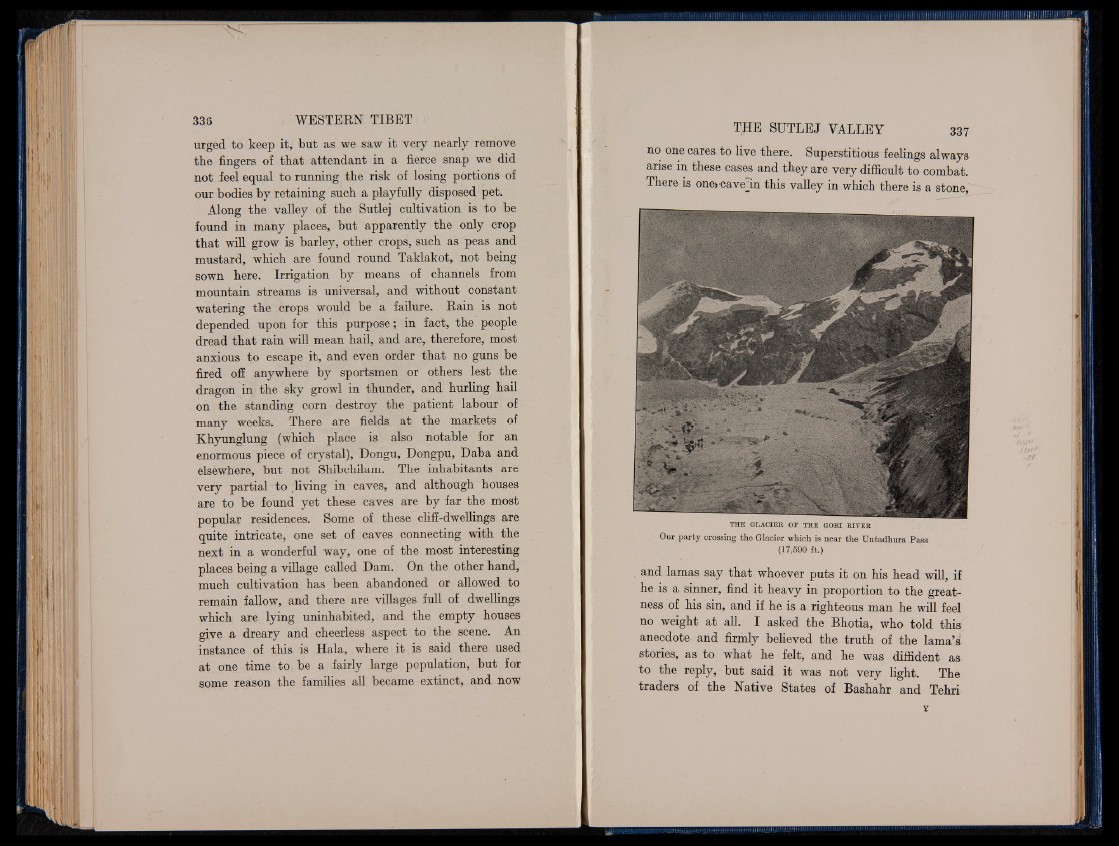
urged to keep it, but as we saw it very nearly remove
the fingers of that attendant in a fierce snap we did
not feel equal to running the risk of losing portions of
our bodies by retaining such a playfully disposed pet.
Along the valley of the Sutlej cultivation is to be
found in many places, but apparently the only crop
that will grow is barley, other crops, such as peas and
mustard, which are found round Taklakot, not being
sown here. Irrigation by means of channels from
mountain streams is universal, and without constant
watering the crops would be a failure. Rain is not
depended upon for this purpose; in fact, the people
dread that rain will mean hail, and are, therefore, most
anxious to escape it, and even order that no guns be
fired off anywhere by sportsmen or others lest the
dragon in the sky growl in thunder, and hurling hail
on the standing corn destroy the patient labour of
many weeks. There are fields at the markets of
Khyunglung (which place is also notable for an
enormous piece of crystal), Dongu, Dongpu, Daba and
elsewhere, but not Shibchilam. The inhabitants are
very partial to .living in caves, and although houses
are to be found yet these caves are by far the most
popular residences. Some of these cliff-dwellings are
quite intricate, one set of caves connecting with the
next in a wonderful way, one of the most interesting
places being a village called Dam. On the other hand,
much cultivation has been abandoned or allowed to
remain fallow, and there are villages full of dwellings
which are lying uninhabited, and the empty houses
give a dreary and cheerless aspect to the scene. An
instance of this is Hala, where it is said there used
at one time to be a fairly large population, but for
some reason the families all became extinct,, and now
no one cares to live there. Superstitious feelings always
arise in these cases and they are very difficult to combat.
There is one> cave_in this valley in which there is a stone,
THE GLACIER OF THE GOBI RIVER
Our party crossing the Glacier which is near the Untadhura Pass
(17,590 ft.)
and lamas say that whoever puts it on his head will, if
he is a sinner, find it heavy in proportion to the greatness
of his sin, and if he is a righteous man he will feel
no weight at all. I asked the Bhotia, who told this
anecdote and firmly believed the truth of the lama’s*
stories, as to what he felt, and he was diffident as
to the reply, but said it was not very light. The
traders of the Native States of Bashahr and Tehri